White House COVID-19 Response Coordinator praises UVM, cautions potential outbreaks
Dr. Deborah Birx, the response coordinator of the White House Coronavirus Task Force, addresses gathered media in the Grand Maple Ball Room at UVM Oct. 10. Birx praised the University and Vermont’s response to the virus.
In a visit to the University of Vermont’s campus Saturday, Dr. Deborah Birx, the Response Coordinator of the White House Coronavirus Task Force praised the University and the states’ handling of the COVID-19 pandemic, while warning of how quickly low positivity rates can change if the state becomes complacent.
Birx said that right now Vermont is 51 out of 51, with the lowest positivity rate in the country.
“There were other states that shared that spot with Vermont. Montana, Wyoming, and you can see how quickly a virus can spread when the community doesn’t prevent the spread of that virus,” she said. “It does take all of us making that personal sacrifice of wearing a mask and physical distancing and taking that same philosophy, just like the students do into their dorm rooms and in their apartments.”
Praise for students and UVM
Birx said that other states and universities should look at the University of Vermont and its students as evidence that staying safe while learning in-person and keeping positivity rates low is possible.
“Again, I will tell you, every student knows how to be safe,” she said. “Because the lowest testing we’ve ever seen among 18 to 22-year-olds were entry test results, but here, they’ve learned how to stay safe during that fall semester.”
In August, UVM conducted over 9,000 pre-arrival COVID-19 tests on students returning to campus. Since then, UVM mandated once a week testing for all students taking in-person classes.
The University has received 70,000 test results since Aug. 7 with only 24 positive cases.
Birx emphasized that the University has done a great job at empowering students understanding that they still can do certain things and that life during a pandemic is not about a bunch of “red X’s.”
“I think creating physical distance, but social engagement is really critical as we all work through this together,” Birx said. “It was really important to meet with the students to be able to talk to nursing students and medical students and undergraduates, and to really see the leadership of the Greek life group here.”
Birx said she was really impressed by the students she spoke with at UVM and how they spread a culture of pandemic safety not only to each other but at home as well.
“I was very struck talking to the students because the students reference their families and where they come from,” she said. “They come from across this country and they also are conveying those messages of physical distancing, mask-wearing, protecting one another back to their households that they come from.”
Birx emphasized the role that research universities, like UVM, can continue to spread its impact further than just with students, through research.
Birx said that losing researchers across the country during the spring as universities were shutting down created a real gap in our understanding of science.
Birx said that while COVID research was ongoing, there was a real lack of understanding within the social sciences to understand how to work with issues around physical and social distancing and getting people to take care of themselves and their families.
Universities have an obligation not only for medical research but also for behavioral science and mental health research, Birx said.
“Universities themselves are a reflection of this great land and the communities around this land and really understanding how we remain socially engaged but physically distanced will become critical to how we understand the stressors and the anxieties that people face with this virus,” she said.
Warnings for the future
As the holiday season draws nearer, bringing with it small intimate gatherings of families, Birx warned that the latest science has shown these events are fertile ground for COVID to spread.
“[It] will have to take all of us as a community to make sure that we protect one another, that we wear our masks, that we physically distance, that we bring those same great behaviors that we have conducted in public into our private lives and into our households,” Birx said.
Going forward, the United States may need a cultural shift that continues to encourage mask-wearing, she said. Birx pointed to countries in Asia that were able to quickly quell the spread of the virus because of the population’s willingness to wear masks.
“One of the reasons Asia adapted so well to COVID-19, was because they had dealt with SARS and MERS and they developed a mask-wearing culture,” Birx said.
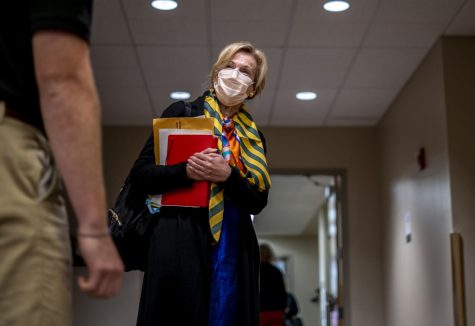
However, as a vaccine inches closer to being ready for release, Birx said every state should be looking at the percentage of individuals vaccinated before relaxing any public health measures.
“That [vaccine] will determine how fast as a country and how fast as each state, we come back to whatever that new normal is and it will depend very much on developing that level of immunity across the population,” she said.
Birx also said it’s important that health advice doesn’t change with each individual, pointing to President Donald Trump’s commitment to return to public events despite a COVID-19 diagnosis Oct. 2.
“We give the same advice to the president, to the vice president, to the task force members. And I think it’s important we give the same advice to the American people,” Birx said. “We know how to prevent the spread of this virus. It requires us to all change our behaviors to protect one another, to wear a mask to physically distance, to wash our hands.”
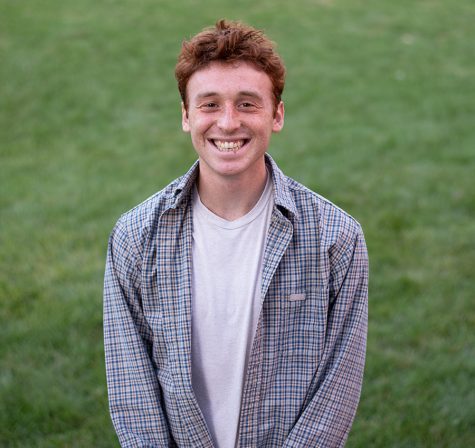
Alek Fleury is an English and Political Science double major from New Jersey (the greatest place on earth). He dedicates most of his life to being the...
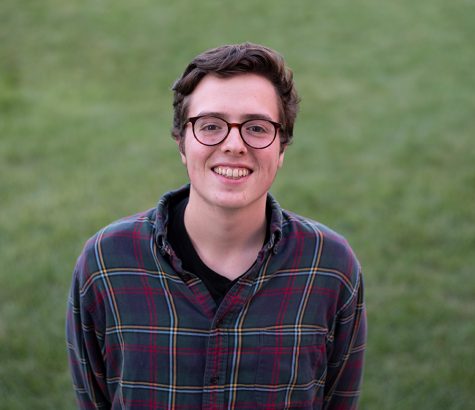
Sawyer Loftus is the News Editor for the Vermont Cynic. He is a junior History major with a passion for News. This past summer he was an intern in the...


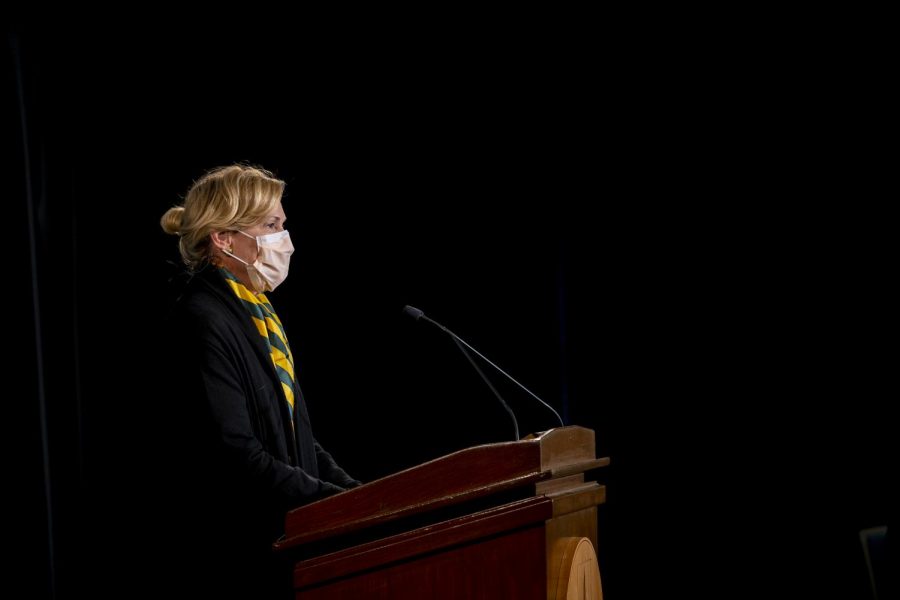
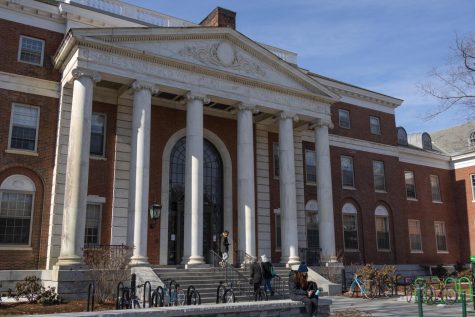
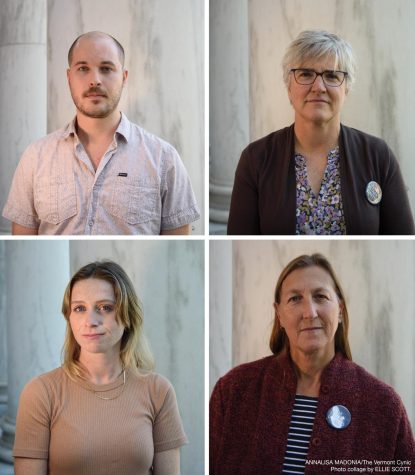
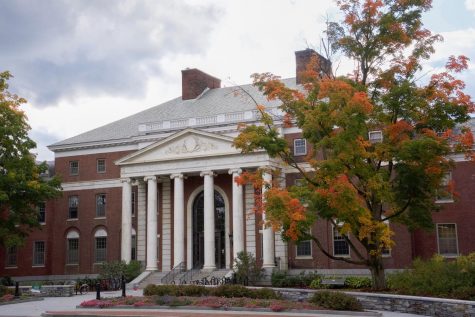
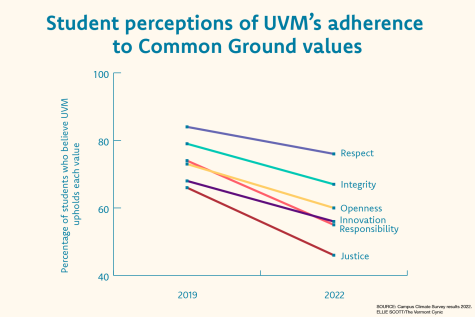
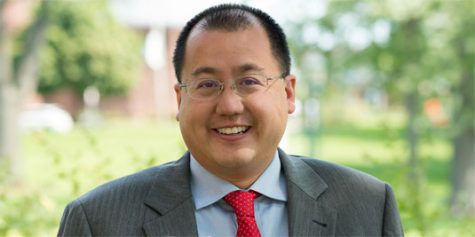
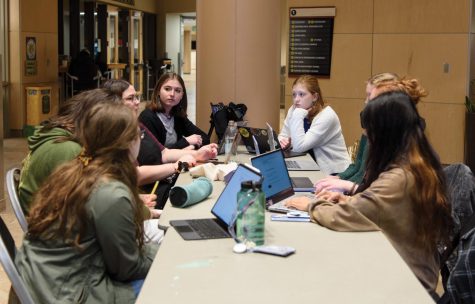
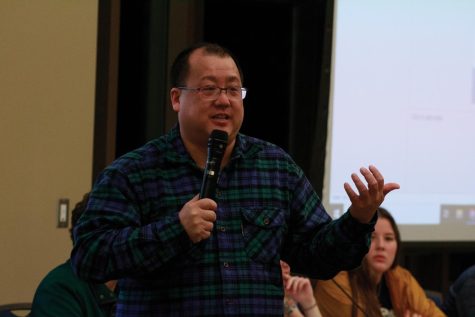
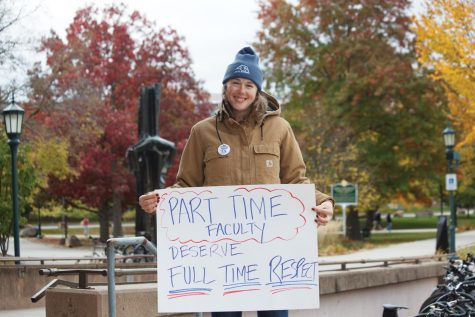
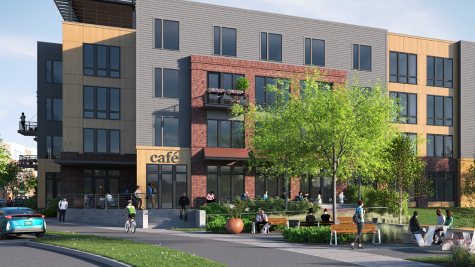

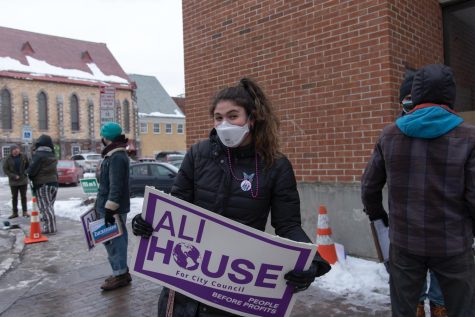
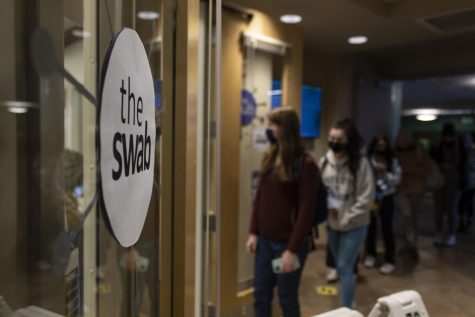
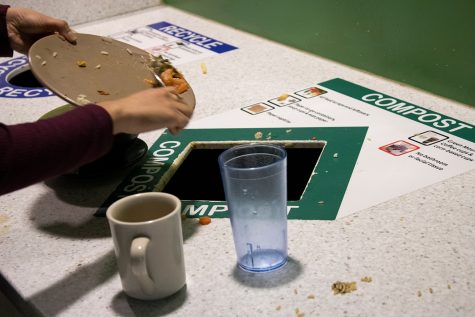
Jenny Grosvenor • Oct 11, 2020 at 11:50 am
Terrific reporting and writing, Alek!